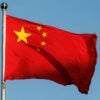The votes from last week’s mostly peaceful referendum are now being counted. Early results indicate that Sudan—Africa’s largest country—will soon split in two. Some countries (such as Iran) have reluctantly accepted the likely outcome, while simultaneously criticizing the idea of self-determination. At the same time, some American commentators such as Daniel Larison have criticized America’s role in supporting southern Sudan’s independence as “folly”. Although the international legal concept of national self-determination is a rather recent one (emerging as an international doctrine after WWII in order to facilitate decolonization), the deeper concept of republican self-government and America’s role in supporting it around the world is as old as the United States itself.
The southern Sudanese people are ultimately responsible for their own destiny, and should be focused not only on protecting human rights during the transition, but also on providing for human nature in the new nation’s institutions of government. For its part, the United States should continue to manifestly support the ideas of liberty and the practice of self-government as the world’s newest nation takes form.
The Daily Signal depends on the support of readers like you. Donate now
The outcome of this month’s independence referendum is legally binding on the government in Khartoum, per the terms of the 2005 Comprehensive Peace Agreement (CPA), which was negotiated with the diplomatic leadership of the Bush administration. That settlement ended the 20-year old civil war between northern and southern Sudan which claimed the lives of over two million people. Unfortunately, Sudan has received less attention from the US under the Obama Administration in recent years, even though the potential for conflict has only increased as it approached the independence referendum and likely secession. At this time, however, it is crucial that the United States continue its long-held tradition of providing moral and diplomatic support to a people seeking independence and self-government. This sort of vigorous diplomacy is not contrary to the traditions of American foreign policy (as some isolationists might argue) but actually in the spirit of early US foreign policy.
Soon after America was established, the people of the United States were presented with the opportunity to support similar experiments in self-government around the world. As revolutions sprang up in Spain’s Latin American colonies, most lovers of liberty in Europe and the United States celebrated. James Madison described the developments as part of “the great struggle of the Epoch between liberty and despotism.” He believed that America should “sustain the former in this hemisphere at least.” This belief led the US to be the first established nation to recognize the new Latin American republics and also helped to inform the Monroe Doctrine and America’s role elsewhere around the world.
As nations in Europe began to seek independence and self-government in the 1800’s, Americans debated what they should do. During the Greek Revolution of 1821 against the Ottoman Empire, U.S. Secretary of State Daniel Webster asked, “What is the soul, the informing spirit of our own institutions, of our entire system of government?” His answer: “Public opinion. While this acts with intensity and moves in the right direction the country must ever be safe—let us direct the force, the vast moral force, of this engine to the aid of others.” Even when the U.S. government does not intervene militarily, the support of the American people and American diplomacy for those who seek liberty is a valuable aid to their cause.
Throughout our history, American citizens have been inspired by our political, religious, and economic freedoms to act as ambassadors of liberty. As missionaries, merchants, and medics, our citizen-diplomats have established schools, orphanages, and hospitals. They have translated literature, educated children, and inspired political reform in countries around the world that were oppressed and impoverished. The “greatest enemy of tyranny,” as Webster said, is this republican spirit of self-government. The civic engagement of individual American citizens and their commitment to America’s political principles are a vital part of the United States’ unique role in the world. Even today, in the work of organizations like Water for Sudan, this spirit is still alive and allows Americans to contribute to experiments in self-government abroad.
America’s official foreign policy must seek to preserve its independence and prudently pursue its interests, while supporting the idea of political freedom across the globe. The American people are not required to risk their blood and treasure in defense of the liberty of others. But the United States cannot have a foreign policy that fails to reflect the political truths that define it. America stands for the principles of liberty, independence, and self-government; its interests are defined and shaped by those principles.
It is in this respect that Daniel Larison’s understanding of the relationship between American diplomacy and liberty is at odds with the wisdom of America’s foreign policy history: “American advocacy or lack of it has nothing to do with it. Our government’s impact on the internal politics of most countries is understandably minimal, and it is unreasonable to expect that the direction of political developments all around the world somehow hinge on what U.S. officials do or do not say.” In contrast to this view, America’s Founders and early statesmen understood that America’s commitment to its principles—in both domestic and foreign policy—has profound consequences for the cause of liberty everywhere.
Like Americans during 1776, the southern Sudanese people are attempting to gain their political independence and “to provide new guards for their future security” after suffering a “long train of abuses” at the hands of the Khartoum government in northern Sudan. The successful referendum this month is a solid step towards self-government for the southern Sudanese, but much uncertainty remains. Although scheduled to become an independent country on July 9 of this year, the precise form of government and even the name of the new nation is yet to be determined.
There may be many unforeseen consequences as well: Some in the north, anticipate that Arabic will become the official language and that sharia law will be instituted in predominately Arab-Muslim Sudan. Also, while the Sudanese government in Khartoum appears to have accepted the legality of the referendum and even the eventuality of southern secession, they are not prepared to let go of the disputed, oil-rich border region of Abyei. Sudanese President Omar al-Bashir has gone so far as to threaten war over Abyei: “We will not accept Abyei to be part of the South. If any party takes any independent action over Abyei, that will be the beginning of a conflict.” Regardless of the outcome of the January referendum, for Bashir, “the status of Abyei remains unchanged.”
There have already been incidents of violence in Abyei this month. Conflict in this region could quickly escalate and spread to other areas. The diplomatic actions of the United States at the critical time should emphasize that violence by the government in Khartoum is unacceptable, as is its failure to prevent or swiftly police any violence that may occur.
Southern Sudan, one of the poorest regions in Africa, has a long road ahead. Although the viability of a prosperous nation-state may be far off, the opportunity to lay the foundations of a free and just southern Sudan is now. The vigorous diplomacy of American officials and the concerned involvement of American citizens can promote a constitutional system of government that ensures the rule of law and a robust system of checks and balances. This scenario is in the best interest of the southern Sudanese people and represents an outcome that would gratify James Madison himself—that in yet another corner of the globe, the balance between liberty and despotism is tipping toward liberty.






























